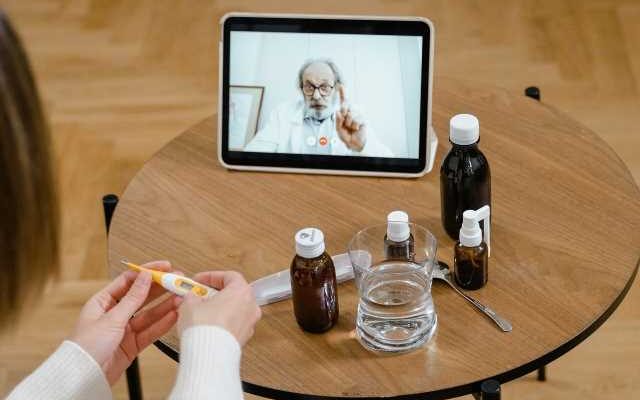
A new study from researchers at Children’s Hospital of Philadelphia (CHOP) found that using telemedicine to evaluate patients with rare genetic conditions resulted in a similar rate of proper diagnosis as in-person visits. However, collecting genetic material from patients who are seen remotely is more challenging, suggesting there is room to improve telemedicine evaluations. The researchers also found lower rates of telemedicine use among families reporting historically marginalized backgrounds, indicating possible disparities in care.
The findings were published today in the journal Pediatrics.
The COVID-19 pandemic caused a major shift in the way pediatricians use telemedicine to care for children. Even before the pandemic, researchers were studying telemedicine in genetics to provide better access to patients. However, given the more widespread use of telemedicine during the pandemic, CHOP researchers wanted to ensure that telemedicine is an appropriate method to assess patients with suspected rare genetic disease.
“As a practicing geneticist, I have long emphasized the importance of a detailed physical examination to inform the diagnosis of my patients,” said Ian M. Campbell, MD Ph.D., an attending physician in the Department of Biomedical and Health Informatics at CHOP and a senior author of the study. “However, our results challenge the assumption that such exams must occur in person.”
Access to proper care for genetic conditions can be challenging. In addition to a shortage of providers who treat these conditions, those who do are often concentrated at large academic medical centers, primarily in urban areas. Typically, experienced physicians and genetic counselors conduct physical examinations, diagnostic testing, patient counseling, and management of rare inherited diseases. The implementation of “telegenetics” could overcome geographic barriers to care and increase patient access.
The COVID-19 pandemic provided a natural opportunity to study the efficacy of telemedicine for those with genetic disorders. The researchers conducted a retrospective cohort study of 5,854 outpatient visits that took place before and after the widespread implementation of telemedicine due to restrictions related to the pandemic. The study utilized surveys to assess patient satisfaction. The primary endpoint for the study was ending the diagnostic odyssey for patients by identifying a new rare genetic diagnosis
The study found that genetic testing was recommended for 79.5% of patients evaluated by telemedicine while only 70.9% for those evaluated in person. Patients seen in person were more likely to have diagnostic samples collected. Together, these two factors canceled each other out, and, in the end, there were similar test completion rates between telemedicine and in person visits. Strikingly, there was also no difference in the genetic diagnosis rate between telemedicine and in person visits.
“Some providers reported less certainty in their diagnostic process when evaluating patients by video,” noted Sarah E. Sheppard, MD Ph.D., a senior author of the study who conducted this work while at CHOP. “This may have led providers to recommend more and broader genetic testing to their telemedicine patients.”
Families also reported increased satisfaction with care received during the pandemic. This could potentially be explained by an increase in genetic counseling provided by telemedicine during the study period.
Source: Read Full Article
